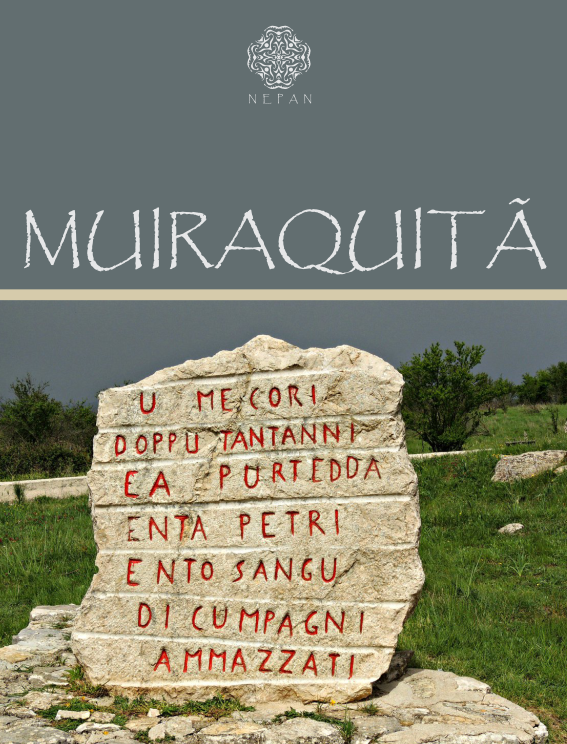ZOË BOCCABELLA’S CALABRIAN CHAPTER IN MEZZA ITALIANA AS A SYMBOLIC ELIMINATION OF SOUTHERNESS FROM HER OWN DIASPORIC SELF
DOI:
https://doi.org/10.29327/216344.5.2-7Palavras-chave:
Australia, Italy, Diaspora, Travel, CalabriaResumo
In this work, we focus on the travel memoir Mezza Italiana (2011), written by Italian-Australian author Zoë Boccabella. Partly of Abruzzese and partly of Calabrian origins, she spends most of her trips to Italyin Abruzzo, only to stay very shortly in the Calabrian town of Palmi. Boccabella’s narration of Calabria offers contestable representations of the region, as she conceals a sense of uneasiness at her own white privilege over Calabrians by means of a superficial and paternalistic outlook. Furthermore, taking Boccabella’s journey as a starting point, we observe how Abruzzese identity is troubled by a desire to disavow its historical, cultural and linguistic affinities with the South of Italy, and by an urge to be considered part of the Centre. By recognising herself as mainly Abruzzese and minimising her Calabrian roots, we contend, Boccabella aims to “acquire full citizenship” not only within the Italian nation, but also within Australia.
Downloads
Referências
AHMED, S. A phenomenology of whiteness. Feminist Theory, v. 8, n. 2, p. 149-168, 2007.
ALBUQUERQUE JUNIOR, D. M. D.Breve, lento, mas compensador: a construção do sujeito nordestino no discurso sócio-antropológico e biotipológico da década de trinta. Afro-Ásia, n. 19-20, 1997, p. 95- 107.
ALEXANDRIS, C. Ateneo Chieti: troppi ‘terroni’ alla d’Annunzio. Pagina Facebook scatena una guerra sul web. Abruzzoweb. 26/03/2013. <https://goo.gl/ BeMvmB>
ANZALDÚA, G. Borderlands/La Frontera: The New Mestiza. San Francisco: Aunt Lute Books, 1987
BENJAMIN, W. Magia e técnica, arte e política, São Paulo: Brasiliense, 1993.
BOCCABELLA, Z. Mezza Italiana: An Enchanting Story About Love, Family, La Dolce Vita and Finding Your Place in the World. Sydney: Harper Collins Australia. [Kindle edition]2011.
CANZIANI, Estella. Through the Apennines and the Lands of the Abruzzi. Cambridge:Heffer, & Sons.1928.
CASSANO, F. Southern thought. In:Thesis Eleven,67, 2001, pp. 1-10.
CONRAD, J. Heart of Darkness. Boston; New York: Bedford; St Martin’s, 1996.
DIANGELO, R. White Fragility. The International Journal of Critical Pedagogy, v. 3, n. 3, pp. 54-70, 2011.
DICKIE, J. The South as Other: from Liberal Italy to the Lega Nord. The Italianist. 1994, 14: 124-140.
DI SOMMA, T. Recensione del romanzo “Mezza italiana” di Zoë Boccabella, Una italo-australiana alla riscoperta delle proprie origini tra orientalismo e snobismo “Bianco”.Muiraquitã-revista de letras e humanidades, 2016, 4.1, <https://goo.gl/AecWc5>
DURANTE, F. I napoletani. Vicenza: Neri Pozza Editore, 2015.
CAPOGRECO, S., MESSINA, M. As Masculinidades Queer das Periferias Globais:” Homem não chora” e “Maruzzella”. Anais do Simpósio Linguagens e Identidades da/na Amazônia Sul-Ocidental, 2016, 1.
FECHTER, A. M. The ‘Other’ stares back: Experiencing whiteness in Jakarta. Ethnography, 2005, 6.1: 87-103.
GARRONE, M. Gomorra. Roma: Fandango, 2008. DVD
GRIBAUDI, G. Images of the South: The Mezzogiorno as seen by Insiders and Outsider. The New History of the Italian South: The Mezzogiorno Revisited, ed. by Robert Lumley and Jonathan Morris (Exeter: University of Exeter Press, 1997), 83-113.
KUNDERA, M. The Unbearable Lightness of Being, trans. Heim M.H. Harper & Row, New York: 1984.
LAWRENCE, D. H. Sea and Sardinia. Cambridge University Press: 2002.
LUCONI, S. L’identità etno-razziale degli italoamericani e il regime fascista. Parlare di razza - La lingua del colore tra Italia e Stati Uniti, Ombre Corte, Verona: 2012
MESSINA, M. Matteo Garrone’s Gomorra: a politically incorrect use of Neapolitan identities and queer masculinities? gender/ sexuality/italy, 2015.
MESSINA, M. Atraso, Uwa’kürü - Dicionário Analítico 1, 96-106, 2016.
MIGNOLO, W. D. The Idea of Latin America.Malden; Oxford; Carlton: Blackwell, 2005.
MIGNOLO, W. D. Epistemic disobedience, independent thought and decolonial freedom. Theory, Culture & Society, 2009, 26.7-8: 159-181.
ORLANDI, E. As formas do silencio. Unicamp, Campinas, Brasil, 1992.
OSSERVATORE PADANO, L’Abruzzo non merita di essere aggregato col Meridione d’Italia. L’indipendenza nuova. 12/10/2012 <https://goo.gl/ hh4ry4>
PAOLINI, M. Università Chieti: guerra agli studenti meridionali. Skuola.net, 16/04/2013 <https://goo.gl/cNAnCj>
PERERA, S. Dead exposures: trophy bodies and violent visibilities of the nonhuman. Borderlands, 13(1), 2014, p. 1-26.
PETEAN, A. C. L. O racismo universalista no Brasil: eugenia e higienização moral da sociedade. Cadernos de História, 2012, 35- 47.
PUGLIESE, J. Assimilation, unspeakable traces and the ontologies of nation. Meridian, 1995, 14.2: 229-254.
PUGLIESE, J. Noi altri: Italy’s Other Geopolitical Identities, Racialised Genealogies and Inter-Cultural Histories. Literary and Social Diasporas: An Italian Australian Perspective, eds Gaetano Rando and Gerry Turcotte, Peter Lang, Bern, 2007 a, 185-202.
PUGLIESE, J. Race as category crisis: Whiteness and the Topical Assignation of Race. Social Semiotics, 12(2), 2002, 149-168. <https://goo.gl/ee9zvK>
PUGLIESE, J. White Historicide and the Returns of the Souths of the South. 2007 b. <https://goo.gl/ cWzz3D>
PUGLIESE, J. Whiteness and the Blackening of Italy: la guerra cafona, Extracommunitari and Provisional Street Justice. In: PORTAL Journal of Multidisciplinary International Studies, 2008. <http://goo.gl/ czE1tO>
RAMIL, V. A estética do frio.CEP, 2015, 96: 020-720.
SAID, E.W. Orientalism. New York: Vintage Books, Random House, 2014.
SAKAI, N. Theory and Asian humanity: on the question of humanitas and anthropos. Postcolonial Studies, 2010, 13.4: 441-464.
SCHNEIDER, J. Italy’s’ Southern Question’: Orientalism in one country. Bloomsbury Academic, 1998.
SOSA, M. M. Bebeto Alves e Vitor Ramil: rendimentos à milonga. Cadernos do IL, (41), 78-94, 2010.
TEQUILA E MONTEPULCIANO BAND Cicirinella teneva teneva, 2013. <https://goo.gl/vjUUEr>
ŽIŽEK, S. Violence: Six sideways reflections. London: Profile Books, 2009.

















